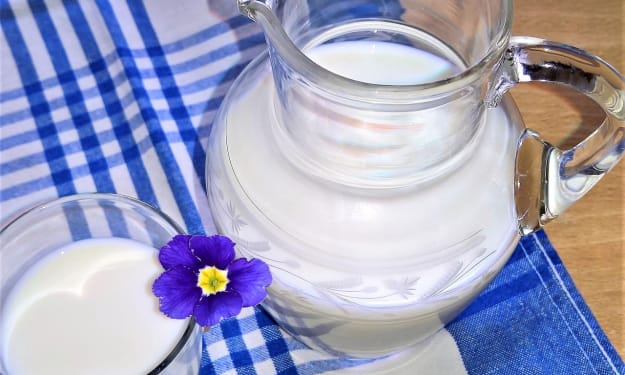
Title: The Health Implications of Excessive Sodium Consumption: A Comprehensive Review
Abstract:
Excessive sodium consumption has become a prevalent issue in modern diets, posing significant health risks. This comprehensive review explores the wide-ranging implications of consuming excessive sodium on various aspects of health. It examines the impact of high sodium intake on blood pressure, cardiovascular health, kidney function, bone health, fluid balance, and the risk of chronic diseases. The review also delves into the sources of dietary sodium, recommended intake levels, and strategies for reducing sodium consumption. Understanding the health consequences of excessive sodium can empower individuals to make informed dietary choices and promote better health outcomes.
Introduction
1.1. Definition and Sources of Sodium
1.2. Sodium Intake Patterns and Trends
1.3. Importance of Sodium Balance in the Body
Sodium and Blood Pressure
2.1. Role of Sodium in Fluid Balance and Blood Pressure Regulation
2.2. Impact of High Sodium Intake on Blood Pressure
2.3. Interactions with Other Factors in Hypertension Development
Sodium and Cardiovascular Health
3.1. Sodium's Effect on Cardiovascular Risk Factors
3.2. Association between Sodium Intake and Cardiovascular Diseases
3.3. Strategies for Sodium Reduction in Cardiovascular Disease Prevention
Sodium and Kidney Function
4.1. Sodium's Impact on Kidney Health and Function
4.2. Relationship between High Sodium Intake and Kidney Diseases
4.3. Sodium Restriction in the Management of Kidney Disorders
Sodium and Bone Health
5.1. Sodium's Effect on Calcium Balance and Bone Health
5.2. Association between High Sodium Intake and Osteoporosis
5.3. Strategies for Maintaining Bone Health with Moderate Sodium Intake
Sodium and Fluid Balance
6.1. Sodium's Role in Fluid Regulation and Edema Formation
6.2. Impact of Excessive Sodium Intake on Fluid Balance Disorders
6.3. Sodium Restriction in the Management of Fluid Imbalances
Sodium and the Risk of Chronic Diseases
7.1. Sodium's Relationship with Chronic Disease Development
7.2. Association between High Sodium Intake and Cardiovascular Diseases
7.3. Potential Link to Other Chronic Conditions: Kidney Disease, Stomach Cancer, and Cognitive Decline
Dietary Sources of Sodium
8.1. Major Sources of Sodium in the Diet
8.2. Hidden Sodium in Processed Foods and Restaurant Meals
8.3. Strategies for Reducing Sodium Intake
Recommended Sodium Intake Levels
9.1. Sodium Guidelines and Recommendations
9.2. Variations in Sodium Requirements by Age and Health Status
9.3. Implementing Sodium Reduction Strategies in Daily Life
Consequences of Excessive Sodium Consumption
10.1. Hypertension and Increased Risk of Cardiovascular Events
10.2. Impaired Kidney Function and Increased Risk of Kidney Disease
10.3. Negative Impact on Bone Health and Increased Risk of Osteoporosis
10.4. Fluid Imbalances and Edema Formation
10.5. Association with Other Chronic Diseases
Strategies for Reducing Sodium Consumption
11.1. Reading Food Labels and Choosing Lower Sodium Options
11.2. Cooking and Preparing Homemade Meals with Minimal Sodium
11.3. Awareness and Education on Sodium Content in Foods
Conclusion
12.1. Key Findings
12.2. Future Directions
12.3. Embracing Reduced Sodium Intake for Better Health
Introduction
1.1. Definition and Sources of Sodium
Sodium is a mineral that is commonly consumed in the form of sodium chloride (table salt) and is found in many processed and packaged foods.
1.2. Sodium Intake Patterns and Trends
High sodium intake has become a prevalent issue in modern diets, with many individuals consuming far more sodium than recommended.
1.3. Importance of Sodium Balance in the Body
Sodium plays a crucial role in maintaining fluid balance, transmitting nerve impulses, and supporting proper muscle function. However, excessive sodium consumption can disrupt this delicate balance and lead to health problems.
Sodium and Blood Pressure
2.1. Role of Sodium in Fluid Balance and Blood Pressure Regulation
Sodium helps regulate fluid balance in the body, which, in turn, influences blood pressure.
2.2. Impact of High Sodium Intake on Blood Pressure
Excessive sodium intake is strongly associated with elevated blood pressure levels, increasing the risk of hypertension.
2.3. Interactions with Other Factors in Hypertension Development
High sodium intake can interact with other factors, such as genetic predisposition, obesity, and low potassium intake, exacerbating the risk of developing hypertension.
Sodium and Cardiovascular Health
3.1. Sodium's Effect on Cardiovascular Risk Factors
High sodium intake contributes to several cardiovascular risk factors, including hypertension, arterial stiffness, and endothelial dysfunction.
3.2. Association between Sodium Intake and Cardiovascular Diseases
A high-sodium diet is associated with an increased risk of cardiovascular diseases, such as heart disease, stroke, and heart failure.
3.3. Strategies for Sodium Reduction in Cardiovascular Disease Prevention
Reducing sodium intake, along with other lifestyle modifications, is recommended to prevent and manage cardiovascular diseases.
Sodium and Kidney Function
4.1. Sodium's Impact on Kidney Health and Function
Excessive sodium intake places a strain on the kidneys, leading to increased fluid retention and potential damage to kidney structures.
4.2. Relationship between High Sodium Intake and Kidney Diseases
High sodium intake is associated with an increased risk of kidney diseases, including chronic kidney disease and kidney stone formation.
4.3. Sodium Restriction in the Management of Kidney Disorders
Reducing sodium intake is a crucial component of managing kidney diseases and preventing further kidney damage.
Sodium and Bone Health
5.1. Sodium's Effect on Calcium Balance and Bone Health
High sodium intake can disrupt calcium balance, leading to increased calcium excretion and potential negative effects on bone health.
5.2. Association between High Sodium Intake and Osteoporosis
Excessive sodium consumption has been linked to an increased risk of osteoporosis and bone fractures.
5.3. Strategies for Maintaining Bone Health with Moderate Sodium Intake
Balancing sodium intake with adequate calcium and other bone-supportive nutrients is important for maintaining optimal bone health.
Sodium and Fluid Balance
6.1. Sodium's Role in Fluid Regulation and Edema Formation
Sodium is crucial for maintaining proper fluid balance in the body. However, excessive sodium intake can disrupt this balance, leading to fluid imbalances and edema.
6.2. Impact of Excessive Sodium Intake on Fluid Balance Disorders
High sodium intake is associated with conditions such as edema, hypertension-related fluid retention, and certain kidney disorders.
6.3. Sodium Restriction in the Management of Fluid Imbalances
Reducing sodium intake is often recommended as part of the treatment for fluid imbalances and related conditions.
Sodium and the Risk of Chronic Diseases
7.1. Sodium's Relationship with Chronic Disease Development
Excessive sodium consumption has been linked to an increased risk of various chronic diseases, including cardiovascular diseases, kidney disease, stomach cancer, and cognitive decline.
7.2. Association between High Sodium Intake and Cardiovascular Diseases
The association between high sodium intake and cardiovascular diseases is well-established, with sodium reduction strategies playing a crucial role in prevention.
7.3. Potential Link to Other Chronic Conditions: Kidney Disease, Stomach Cancer, and Cognitive Decline
Emerging evidence suggests that high sodium intake may also be associated with an increased risk of kidney disease, stomach cancer, and cognitive decline. Further research is needed to explore these relationships fully.
Dietary Sources of Sodium
8.1. Major Sources of Sodium in the Diet
Processed and packaged foods, including snacks, fast food, canned goods, and condiments, are significant sources of dietary sodium.
8.2. Hidden Sodium in Processed Foods and Restaurant Meals
Many foods contain hidden sodium, making it essential to read labels and be aware of sodium content when making food choices.
8.3. Strategies for Reducing Sodium Intake
Choosing fresh, whole foods, cooking at home, using herbs and spices for flavoring, and being mindful of portion sizes can help reduce sodium consumption.
Recommended Sodium Intake Levels
9.1. Sodium Guidelines and Recommendations
National guidelines recommend specific daily sodium intake limits, emphasizing the importance of reducing sodium consumption for better health outcomes.
9.2. Variations in Sodium Requirements by Age and Health Status
Individual sodium requirements may vary based on age, sex, physical activity level, and underlying health conditions.
9.3. Implementing Sodium Reduction Strategies in Daily Life
Educational initiatives, public health campaigns, and individual efforts can promote awareness and facilitate the adoption of sodium reduction strategies.
Consequences of Excessive Sodium Consumption
10.1. Hypertension and Increased Risk of Cardiovascular Events
Excessive sodium consumption is a significant risk factor for developing hypertension, which, in turn, increases the risk of cardiovascular events.
10.2. Impaired Kidney Function and Increased Risk of Kidney Disease
High sodium intake can lead to impaired kidney function and contribute to the development and progression of kidney diseases.
10.3. Negative Impact on Bone Health and Increased Risk of Osteoporosis
Excessive sodium intake disrupts calcium balance, potentially compromising bone health and increasing the risk of osteoporosis.
10.4. Fluid Imbalances and Edema Formation
Consuming excessive sodium can disrupt fluid balance in the body, leading to fluid imbalances, edema, and related health issues.
10.5. Association with Other Chronic Diseases
High sodium intake has been associated with an increased risk of various chronic diseases, including kidney disease, stomach cancer, and cognitive decline.
Strategies for Reducing Sodium Consumption
11.1. Reading Food Labels and Choosing Lower Sodium Options
Educating oneself on reading food labels and selecting lower-sodium alternatives can help individuals make more informed choices.
11.2. Cooking and Preparing Homemade Meals with Minimal Sodium
Cooking at home using fresh ingredients allows individuals to have better control over sodium content in their meals.
11.3. Awareness and Education on Sodium Content in Foods
Promoting awareness and education about the sodium content in foods can empower individuals to make healthier choices and advocate for sodium reduction.
Conclusion
12.1. Key Findings
Excessive sodium consumption poses significant health risks, including hypertension, cardiovascular diseases, kidney disorders, bone health problems, fluid imbalances, and an increased risk of chronic diseases.
12.2. Future Directions
Continued research is needed to further understand the complex interactions between sodium intake and health outcomes and to explore effective strategies for reducing sodium consumption.
12.3. Embracing Reduced Sodium Intake for Better Health
Reducing sodium intake through dietary modifications and increased awareness can promote better health outcomes and help prevent the development of various health conditions associated with excessive sodium consumption.
About the Creator
Piyal bal
I am a fervent writer in this mesmerizing,phenomenal platform to create essential,interesting stories of various subjects.






Comments
There are no comments for this story
Be the first to respond and start the conversation.